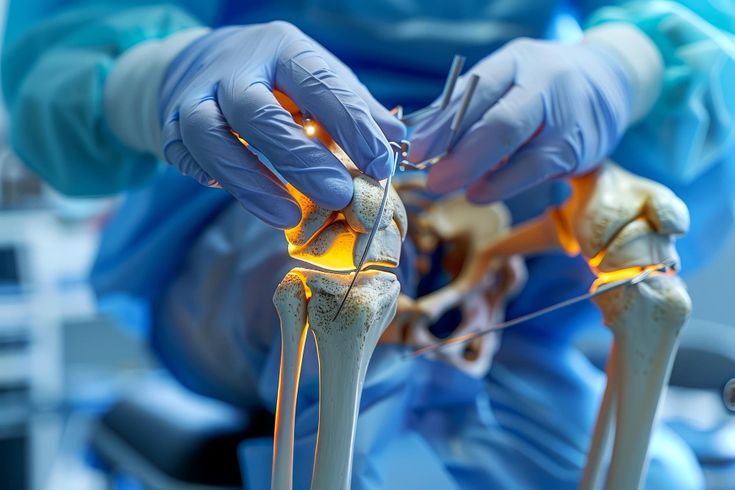When we hear the term “joint pain,” we often think of temporary aches from overuse or minor injuries. But for many individuals, especially those with arthritis or degenerative joint conditions, joint pain can be severe, persistent, and life-limiting. In such cases, joint replacement surgery can offer lasting relief and restore mobility- helping patients return to an active, pain-free lifestyle.
In this blog, we’ll discuss what joint replacement surgery is, the signs that indicate you may need it, and how expert orthopedic care ensures the best outcomes.
What Is Joint Replacement Surgery?
Joint replacement surgery involves removing damaged or worn-out parts of a joint and replacing them with artificial components (prostheses) made of metal, ceramic, or plastic. These components mimic natural joint movement, reducing pain and improving function.
The most common joint replacements are:
- Knee Replacement (Total or Partial) – for advanced osteoarthritis or injury-related wear.
- Hip Replacement – for hip joint degeneration, fractures, or avascular necrosis.
- Shoulder and Elbow Replacement – for severe arthritis or post-traumatic stiffness.
When Should You Consider Joint Replacement?
Persistent pain or stiffness that interferes with everyday life could signal the need for surgical evaluation. Watch out for these red flags:
- Severe, Chronic Pain:
Pain that persists even at rest or disrupts sleep may indicate advanced joint damage. - Reduced Mobility:
Difficulty in walking, climbing stairs, or performing routine tasks despite medication or therapy. - Joint Deformity:
Visible changes in joint shape or alignment often suggest structural deterioration. - Failure of Conservative Treatments:
When physiotherapy, medication, or lifestyle changes no longer provide relief. - Impact on Daily Quality of Life:
When joint discomfort limits work, exercise, or social interaction.
Types of Joint Replacement Surgeries
- Total Joint Replacement: The entire joint surface is replaced with prosthetic components.
- Partial Joint Replacement: Only the damaged section of the joint is replaced, preserving healthy tissue.
- Revision Joint Replacement: Performed when a previous implant wears out or causes complications.
Each surgery is customized based on patient age, bone quality, activity level, and overall health.
Diagnosis and Pre-Surgical Evaluation
Before surgery, your orthopedic specialist conducts a comprehensive assessment, including:
- X-rays and MRI scans to evaluate joint damage.
- Blood tests and medical clearance to ensure surgical readiness.
- Detailed discussions about implant options and expected recovery.
This personalized planning minimizes risks and ensures the best possible functional outcome.
Recovery and Rehabilitation
Recovery is a gradual but rewarding process. Most patients begin walking with assistance within a day or two after surgery. Physiotherapy plays a key role in rebuilding strength and restoring motion.
Post-surgery care includes:
- Guided physiotherapy sessions
- Pain and swelling management
- Regular follow-ups for monitoring implant stability
- Lifestyle advice for maintaining joint health
Expert Orthopedic Care Is Essential
Joint replacement is a highly specialized procedure that requires precision, planning, and post-operative management. Experienced orthopedic surgeons ensure minimal tissue disruption, accurate implant placement, and faster rehabilitation.
Conclusion
Joint replacement surgery is not just about replacing a joint- it’s about restoring independence, confidence, and quality of life. Early consultation with an orthopedic specialist can help determine the right time for surgery and the most suitable procedure for your condition.
If you or a loved one is struggling with chronic joint pain, don’t wait. Seek expert guidance today.
For advanced orthopedic evaluation and compassionate care, consult Dr. Rajeev Nirawane, a leading Orthopedic and Joint Replacement Surgeon in Wakad, Pune. With extensive experience in joint reconstruction and minimally invasive techniques, Dr. Nirawane provides personalized treatment designed to help you move freely again-without pain.
